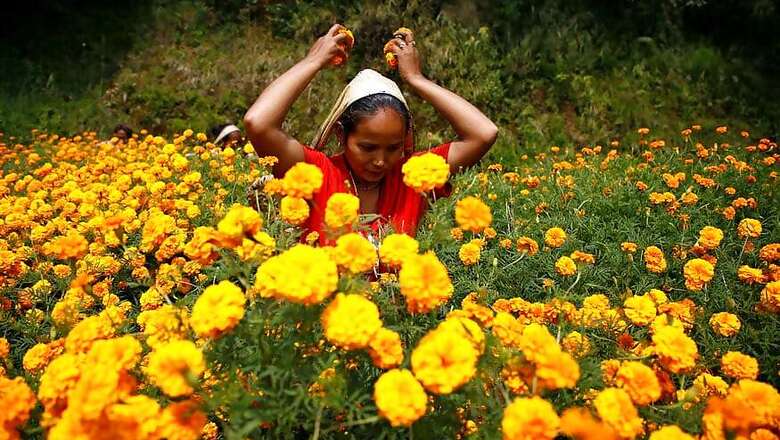
views
Diwali is the festival of prosperity and wealth. Many people decorate their houses with marigold flowers and mango leaves on the occassion.
However, have you ever wondered, why are marigolds and mango leaves used to decorate home on Diwali or any other auspicious ceremony or festival?
Well, the answer lies in the Puranas as well as Ayurveda.
Why marigold flowers are used for Diwali and other ceremonies:
Marigold flowers are called ‘Herb of the Sun,’ the distinct fragrance of these flowers helps improve one’s mood and ward-off stress. The orange and yellow color of marigolds is considered auspicious for new beginnings and important events of life.
Scientifically, marigold has a plethora of benefits for its anti-inflammatory, anti-spasmodic and anti-cancer properties. It is a rich source of antioxidants, antibiotics and vitamin-C too. Moreover, the fragrance of marigolds, keeps mosquitoes, bugs and other insects away.
The spiritual significance of mango leaves:
Mango tree leaves are used during auspicious rituals to complete a "Purnakumbha." Before beginning any puja, an earthen pot is filled with water and adorned with fresh mango leaves with a whole coconut on top, and kept for puja sthapna (foundation), wherein the pot represents Mother Earth, water as a life giver, coconut the divine conscious and the mango leaves symbolize life. The whole "Purnakumbha" symbolizes Goddess Lakshmi and good fortune.
Scientifically, the leaves are considered to empower fertility and has antibacterial and antiseptic properties to fight various illnesses. Mango-tree leaves absorb carbon dioxide and release oxygen. Torans made from mango-tree leaves adorn the main doors of houses, temples and offices on Diwali.




















Comments
0 comment